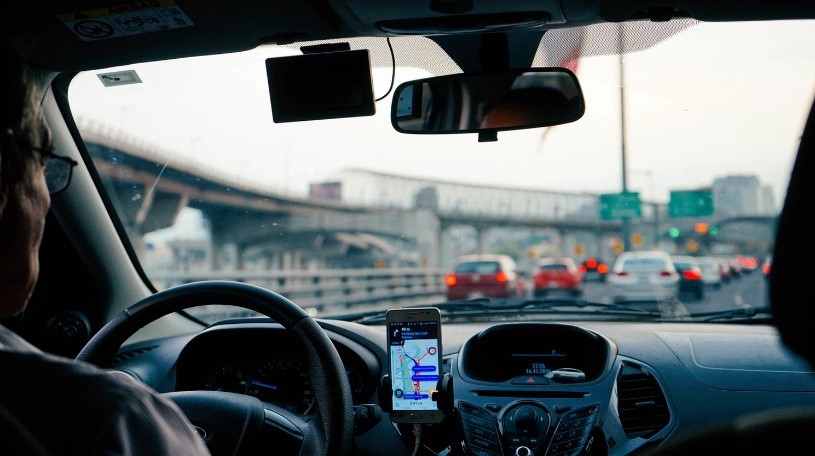Side gigs are a big way to earn more of a payday, but you have to tell your car insurance company if you're ridesharing or delivery driving. Doing deliveries without business insurance can be dangerous, and you must know what your obligations are before you get involved in an accident.
Furthermore, there are other side hustles that can impact your insurance rates. Here are some side hustles that affect your car insurance and what you need to know to stay protected.

Ridesharing
People with car-related careers generally have to pay more for car insurance. Some providers like Uber provide a form of insurance, but you are still required to have a personal insurance plan. Uber's auto insurance only kicks in if you were en route to pick up a rider or currently transporting them.
If you get into an accident while doing Uber work, Uber will provide liability coverage and uninsured/underinsured bodily injury coverage. They will also offer coverage for physical damage to your car if you have comprehensive and collision coverage on your personal auto insurance.
However, if you were simply available for a ride request but not on your way, you will only have partial coverage.
Partial coverage can be a problem, as most personal auto insurance will only cover you for personal use. Meanwhile, the insurance provided by rideshare companies like Uber and Lyft often only protect you during specific parts of your trip and only up to a certain amount.
The period of time when you are waiting for a rider is especially a gray area as far as insurers are concerned.
Drivers can opt to get rideshare insurance rather than a personal car insurance policy. This allows you to avoid paying out of pocket for repairs or risk losing your personal auto coverage after an accident. Rideshare insurance covers you whether you are on the app or off and can be used even if you work for multiple ridesharing companies.
Delivery Driving
If you do any kind of delivery driving, whether for food or other products, you will likely need specialized insurance, especially if you are using your own car. Due to the pandemic, many have shifted to ordering delivery rather than visiting restaurants in person, which has increased the demand for delivery through companies like Grubhub or DoorDash.
This demand has increased the number of drivers who use their cars regularly for work. As there is pressure to make speedy deliveries, the risk of delivery-related crashes has increased.
In addition to affecting driving and insurance, COVID has also impacted how injury settlements are taken care of. The pandemic has made it difficult for some to get the payout they need.
Some employers offer a specific insurance policy that covers delivery drivers when on the job, but there can be gaps between it and your personal insurance policy. This means you may have to personally pay for damage to yourself or property if you get into an accident while picking up an order, not delivering it.
You should make sure to contact your insurance company to know how much coverage they offer if you get into a work-related crash.
As a general rule, anything you do with your vehicle that counts as business use will likely require you to have some form of commercial auto insurance. If you don't relay this information to your insurer, they may deny your claim.
Food Service
A side gig can provide many benefits to your life, including more flexibility and enjoyment from work. However, some side gig jobs can be stressful and challenging as well-and often, stressful jobs that involve long or frequent commutes or fewer hours are seen as red flags by insurance agencies.
Many part-time jobs that involve food service, such as being a chef or a waiter, can also cause you to have high rates for car insurance. While you won't have a gap in coverage due to using a car for business purposes, the stress, late hours, and potential risk of these positions can lead you to have higher rates.
Jobs that include serving or proximity to alcohol, such as bartending, hosting, and DJing, may also cause you to have increased rates. However, this depends on the insurer, so be sure to ask.
Entertainment and Sports Gigs
If you take time off from regular work to hone your skills in entertainment, you can often make a lot of extra money. You wouldn't think that being a part-time musician would affect your rates, but think again.
Side gigs that involve touring or any kind of extended travel to unfamiliar places can affect your rates. In addition, the desire for fame or fast living that is associated with entertainment means that those working as musicians or entertainers are often seen as having more risky driving behaviors.
At the same time, actors usually carry the cheapest car insurance. In addition, you may also still maintain low rates regardless of your side gig if your primary job is considered a low-risk occupation. Low-risk occupations include jobs like teaching or serving in the military (considered low risk to insurers, not in terms of the danger of the position).
Business Use Versus Personal
There are a lot of vehicle uses that may fall in a gray area between business and personal use. For instance, commuting to work is generally seen as personal use, but what if you pick up something for your manager from an office supply store on the way there? Or what if a salesperson takes a detour on vacation to drop in on a regular client?
For those who have their own home business as a side gig, the lines can be blurrier. You may need to check in with your insurance provider to learn what gray areas there may be with your insurance and to find out if you need a cheap commercial policy.
As a general rule, if you use your car to do deliveries or transport products or people, you will definitely need some kind of coverage beyond a personal policy. Be sure to keep this in mind when finding a side gig.
About The Author: Deborah Goldberg researches and writes about savings, finance tips, and insurance discounts for the auto insurance comparison site, 4AutoInsuranceQuote.com. She is passionate about consumer transparency and simplifying complex insurance topics for consumers.
* This is a contributed article and this content does not necessarily represent the views of hngn.com








